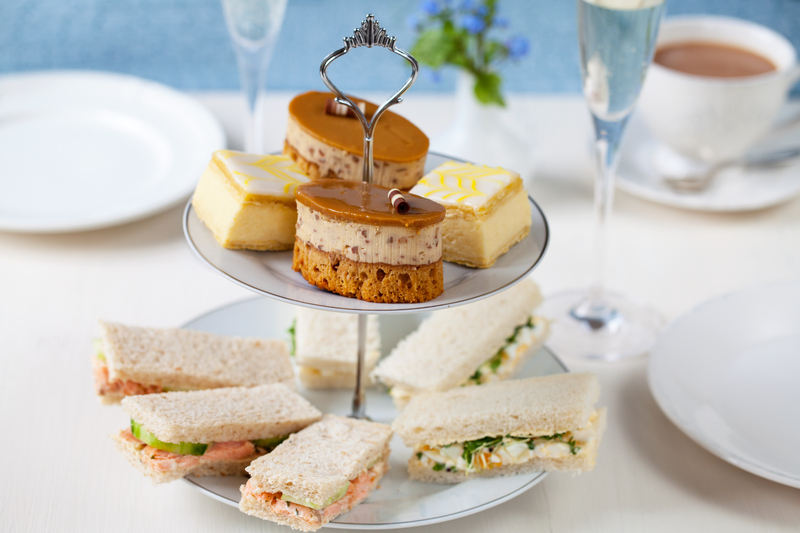Sustain Your Clean Space with These Ongoing Clutter Control Strategies
Posted on 27/10/2025
Sustain Your Clean Space with These Ongoing Clutter Control Strategies
Nothing matches the satisfaction of walking into a clutter-free home. Yet, as days turn into weeks and months, even the most pristine spaces can succumb to a creeping chaos of stuff. The secret to maintaining an organized environment goes beyond occasional deep cleaning. To truly sustain your clean space, you need effective ongoing clutter control strategies. In this article, we'll explore actionable techniques to keep your surroundings tidy, practical routines to prevent future mess, and expert insights for lasting home organization success.

Why Ongoing Clutter Control Is Essential
Most people clean their homes with great intentions. However, the real challenge lies not in tidying up, but in maintaining an orderly space over time. Regular clutter control isn't just about aesthetics--it's a key to:
- Lowering daily stress and boosting mental health
- Enhancing productivity by minimizing distractions
- Improving hygiene and reducing potential allergens
- Saving time and money by preventing the loss of items and avoiding repurchasing
- Creating a welcoming atmosphere for yourself and your guests
Adopting a system of ongoing clutter prevention will help you break the cycle of mess and embrace an organized, peaceful lifestyle.
The Psychology Behind Clutter and Cleanliness
Understanding why clutter piles up is the first step to conquering it for good. Many people struggle with:
- Emotional attachment to items: Sentimental value makes it hard to let go.
- Procrastination: Small tasks deferred quickly accumulate.
- Busy schedules: Lack of time fuels disorganization.
- Poor storage solutions: Insufficient or inefficient organization systems make messes inevitable.
By acknowledging these common hurdles, you can tailor your clutter control strategies to fit your unique needs and priorities.
1. Set Up Functional Zones in Your Home
Clutter often occurs simply because items lack a designated spot. Functional zones give every possession a home and establish clear boundaries for categories of belongings:
- Entryway Zone: Hooks for keys, a tray for mail, basket for shoes, and a coat rack.
- Work Zone: Desk organizers for supplies, files for papers, charging stations for gadgets.
- Leisure Zone: Storage for books, games, and electronics within easy reach, while surplus items are kept elsewhere.
- Kitchen Zone: Labeled containers for pantry staples, drawer dividers for utensils, and an uncluttered countertop.
- Wardrobe Zone: Bins for accessories, hooks for daily bags, categorized clothing sections.
Visual cues and consistent habits make it easier for everyone at home to return items to their rightful place and prevent the slow creep of disarray.
2. Adopt the "One In, One Out" Rule
The "One In, One Out" rule is a cornerstone of ongoing clutter control. Simply put: for every new item you bring into your space, you commit to removing one similar item. This principle works wonders for wardrobes, kitchen tools, toys, books, and more.
- Keep a donation box handy at all times for easy access.
- Apply the rule to gifts as well as purchases for maximum impact.
- Re-evaluate quarterly for items that haven't been used, and let them go.
Over time, this strategy will help you maintain an organized environment without accidental accumulation.
3. Make Decluttering a Daily Habit
Quick, daily clutter management prevents overwhelming mess from forming. Establish a short daily routine like this:
- Morning: Make the bed, return items to their zones, clear kitchen surfaces.
- Evening: Scan each room for stray objects, sort mail and papers, prep for the next day.
Even just 10 minutes a day of clutter check-in can dramatically reduce mess and help sustain your clean space with little effort.
4. Schedule Weekly "Reset" Sessions
Dedicate one day each week to a slightly more thorough organization session--your "clutter reset." During this time, aim to:
- Return lost items to their proper spots
- Wipe down surfaces and vacuum visible spaces
- Declutter junk drawers or catch-all baskets
- Recycle, donate, or discard items that have outlived their usefulness
This you can prevent accumulation and enjoy the peace of a consistently tidy space.
5. Embrace Smart Storage Solutions
Clutter thrives where storage fails. Evaluate your current storage and invest in improvements where needed:
- Vertical shelving to maximize floor space
- Clear bins and labels for visibility and categorization
- Under-bed containers for off-season or less-used items
- Drawer dividers and trays to prevent mixed contents
- Wall hooks or pegboards for often-used tools and accessories
Use storage specifically tailored to your lifestyle--what works for a family of five may be different than for a single professional. Prioritize easy access and retrieval to encourage long-term maintenance.
6. Tackle Paper Clutter Systematically
Mail, receipts, schoolwork, and random papers are notorious for overwhelming surfaces. To combat this form of clutter:
- Sort mail immediately and recycle junk on the spot
- Create an action tray for items requiring attention
- Switch to digital billing and filing wherever possible
- Shred sensitive documents you no longer need
Once your paper flow is streamlined, sustaining a tidy home space becomes much easier.
7. Eliminate "Clutter Hotspots"
Every house has "clutter magnets"--surfaces or corners where items consistently pile up. Identify yours and implement preventative tactics:
- Add baskets or bins for temporary storage at entryways or counters
- Post reminders for family members to reset these hotspots daily
- Relocate or remove furniture that attracts clutter (like that catch-all chair)
- Limit surface decor to leave less available space for clutter
With awareness and small obstacles, these problem zones can quickly become areas of pride.
8. Practice Mindful Purchasing
The foundation for any sustainable clutter control system is resisting the urge to acquire more. Ask yourself these questions when shopping:
- "Do I already own something similar?"
- "Is this item truly necessary or will it add to clutter?"
- "Where will I keep it at home?"
- "Does it align with my current lifestyle and priorities?"
Practicing intentional consumption curbs clutter at its source, ensuring your tidy environment remains intact.
9. Involve Everyone in the Household
Long-term clutter management isn't a solo pursuit. Share strategies with family members or roommates, and assign roles like:
- Responsibility for weekly resets
- Ownership of shared spaces
- Regular clutter patrol for younger children
Accountability and teamwork reinforce good habits and reduce the burden on any one person.
10. Celebrate Milestones to Stay Motivated
Maintaining a clutter-free space takes ongoing effort, so recognize your progress! Celebrate clean weeks with a family movie night, flowers for the dining table, or a fun activity. Positive reinforcement helps turn chores into achievable routines with long-term rewards.
Expert Tips for Sustaining Your Organized Space
- Let go to grow. Be ruthless with items that no longer serve you--your mental space will benefit, too.
- Use visual reminders. Notes, labels, and color-coding keep everyone on the same page.
- Adjust systems seasonally. As your needs change, update your routines and storage accordingly.
- Ask for help. Professional organizers offer valuable guidance and accountability for tackling tough spaces.

Frequently Asked Questions: Clutter Control Solutions
Q1: How often should I declutter my home?
Consistency is key! Daily tidying and weekly organizational resets are recommended. For deep decluttering, set aside a few hours several times a year, especially before major holidays or seasonal changes.
Q2: What about sentimental items?
Sentimental clutter is challenging. Select a designated box for treasured keepsakes and set boundaries. Consider taking photos of bulky or fragile mementos to preserve the memory without sacrificing space.
Q3: How can busy families maintain clutter control?
Establish simple routines and involve everyone in the process. Use clear bins, labels, and easy-access drop zones. Regularly assess which items your family truly uses or values--donate extras to keep only the essentials.
Conclusion: Enjoy the Lasting Benefits of Clutter-Free Living
Living in a clean, organized environment transforms the way you feel and function every day. By integrating these proven ongoing clutter control strategies--and encouraging everyone in your household to take part--you'll not only sustain your clean space but also foster a more calm, focused, and joyful home.
Remember: clutter control isn't about perfection. It's about creating a system that works for you, making room for what matters most, and enjoying the freedom of an organized life.

 020 3795 6999
020 3795 6999 020 3795 6999
020 3795 6999




 House clearance
House clearance Rubbish collection
Rubbish collection Here at Rubbish Junk we give you the unique opportunity to keep your home free of clutter at prices that will constantly please you. Other domestic clearance companies in London might be...
Here at Rubbish Junk we give you the unique opportunity to keep your home free of clutter at prices that will constantly please you. Other domestic clearance companies in London might be... Rubbish Junk knows what to do to keep your home rubbish-free. When you are facing a situation that requires clearance services,...
Rubbish Junk knows what to do to keep your home rubbish-free. When you are facing a situation that requires clearance services,...



